Round House’s ‘Next to Normal’ is a Powerhouse (Review)
Tracy Lynn Olivera and Kevin S. McAllister scale the heights of blistering emotion in Round House's stellar "Next to Normal."
By André Hereford on February 6, 2024 @here4andre

Any and every one us in the audience for Alan Paul’s penetrating production of Next to Normal at Round House might know a woman like the show’s Diana Goodman. Maybe you’re related to her, or see her in the mirror.
You can see the truth of her embodied in the brilliant performance of Tracy Lynn Olivera, a D.C. theater treasure making her Round House debut as the suburban wife and mom struggling against grief, depression, and mental illness to find even some semblance of stability.
Soldiering by Diana’s side, and soaring alongside her through the Tony-winning score by composer Tom Kitt and lyricist Brian Yorkey, is her husband Dan, devoted yet often conflicted, portrayed by the equally esteemed Kevin S. McAllister.
So, Round House crowds are doubly blessed to see and hear such challenging roles essayed by those with the due talents, conviction, and gravity to send us scaling the raw, ragged mountains of emotion brought forth in Yorkey’s deftly plotted script.
Olivera and McAllister marry beautifully as onstage partners in Diana and Dan’s complicated, trying existence. Their bustling family dynamic, with teenage son Gabe (Lucas Hinds Babcock) and daughter Natalie (Sophia Early), is credibly set in the first number, “Just Another Day,” aided by effective intentional misdirection. They might seem like everything is “normal,” until the scene reveals Diana’s tenuous hold on reality.
Wilson Chin’s striking scenic design suggests that liminal space between reality and what’s happening in Diana’s head. In her tangible world, pill bottles spill to the floor, and doors slam with force. In “I Miss the Mountains,” she tries to toss out her meds and live with the peaks and valleys.
But in her thoughts, she’s haunted by pain she can’t process. Though Paul offers acute insight into her experience, employing a wall of video panels, featuring sometimes trippy projections designed by Nicholas Hussong.
The screens become a means of amplifying all the characters’ feelings, as well as the tension of Diana’s encounters with extreme medical intervention. The visual spectacle can distract from vital beats of song or dialogue, but the device adds a subtle tinge of horror that suits aspects of this probing portrait.
And throughout, Paul navigates the cast gracefully through delicate transitions from an average family’s quotidian rhythms into the dark, imaginary caverns of Diana’s struggles.
Diagnosed with bipolar disorder, her struggles reverberate through all their lives. Yet, she maintains a sense of humor, exemplified in the charmingly sardonic “My Psychopharmacologist and I.” As said psychopharmacologist, Calvin McCullough contributes his own deft comic timing to the number.
That song pairs with Dan’s more serious “Who’s Crazy,” with him contemplating his own struggles in this marriage, and McAllister beautifully relaying a spouse’s sense of duty and exhaustion. As their daughter, spiraling into her own chaos of drugs and confusion, Early captures Natalie’s justifiable defiance, alongside her deeply felt sadness.
The whole family’s understandably exhausted, while, paradoxically, the cast — including Ben Clark, who shines as Natalie’s amorous classmate Henry, in his “Hey” duets with Early — must tap into wells of stamina to put across Kitt and Yorkey’s challenging score and emotionally taxing narrative.
Probing universal truths about grief and depression via the very specific circumstances of one loving family, this Next to Normal pierces the heart, provokes vital conversation, and brings powerhouse performance and music to our ears.
Next to Normal (★★★★☆) runs through March 3 at Round House Theatre, 4545 East-West Highway, Bethesda, Md. Tickets are $46 to $88, with discount options available, including free tickets for students ages 13 through college, and 2-For-1 Tuesdays.
Call 240-644-1100, or visit www.roundhousetheatre.org.
The Wonderful ‘Your Name Means Dream’ Finds Heart in AI
Jose Rivera's probing drama "Your Name Means Dream" offers a soulful exploration of our future living with AI.
By André Hereford on March 27, 2025 @here4andre
Last seen onstage at Theater J putting a tender comic stamp on the remarkable Ruth K. Westheimer in Becoming Dr. Ruth, Naomi Jacobson displays impressive range portraying a very different feisty older lady in José Rivera's thought-provoking Your Name Means Dream.
Rivera -- noted for plays Marisol and Cloud Tectonics, and his Academy Award-nominated screenplay for The Motorcycle Diaries -- directs the sci-fi drama exploring the relationship between Jacobson's 74-year-old spitfire Aislin and her AI service robot Stacy, played by Sara Koviak.
Ryan Bernier’s Golden (Girls) Ticket
Ryan Bernier has been playing Dorothy in "Golden Girls: The Laughs Continue" for two years and shows no signs of stopping.
By Randy Shulman on March 16, 2025 @RandyShulman
"This is the first time I've had a role for this long," gasps Ryan Bernier. "We just hit our 300th performance of the show in Detroit in January!"
The show is Golden Girls: The Laughs Continue, a warmly loving, gut-bustingly funny stage parody of the hit NBC series that ran for seven seasons from 1985 to 1992, and lives on in perpetuity in reruns. Bernier portrays Dorothy, made iconic by the indomitable and legendary late Bea Arthur, for whom the 6'3" actor is also a dead ringer.
To prepare for the role, which Bernier plays in full drag, he "consumed everything that Bea Arthur had ever done -- and we're talking from Maude to her brief gig on the Star Wars Holiday Special to her brief voiceover role in Futurama. She was a performer who really found a way to bring all of the tools in her toolbox to every project that she picked up.
‘Glengarry Glen Ross’ Is An Abusive Night of Theater
A barrage of racial epithets, mean speech, and misogyny permeates David Mamet's "Glengarry Glen Ross," in its third Broadway revival.
By Ryan Leeds on April 6, 2025
You would think that, by now, reasonable theatergoers would be exhausted by angry, self-serving bloviates who unleash profanities and cruel language on each other and anyone within earshot.
Obviously, there is more demand for it, as David Mamet's 1984 Pulitzer Prize-winning Glengarry Glenn Ross is back on Broadway for a third time.
And, like the unwitting suckers who fall into the clutches of this predatory group of real estate sharks, audiences are quick to drop top dollar to see a starry cast comprised of Bob Odenkirk as Shelley Levene, a past-his-prime salesman looking to increase his numbers, Bill Burr as Dave Moss, another older sales guy who huffs and puffs like the big, bad wolf, and Kieran Culkin as hotshot Ricky Roma, a slick smooth talker who has no time for excuses.
Support Metro Weekly’s Journalism
These are challenging times for news organizations. And yet it’s crucial we stay active and provide vital resources and information to both our local readers and the world. So won’t you please take a moment and consider supporting Metro Weekly with a membership? For as little as $5 a month, you can help ensure Metro Weekly magazine and MetroWeekly.com remain free, viable resources as we provide the best, most diverse, culturally-resonant LGBTQ coverage in both the D.C. region and around the world. Memberships come with exclusive perks and discounts, your own personal digital delivery of each week’s magazine (and an archive), access to our Member's Lounge when it launches this fall, and exclusive members-only items like Metro Weekly Membership Mugs and Tote Bags! Check out all our membership levels here and please join us today!
The Magazine
-
Most Popular
 Gay Army Reserve Officer in Uniform Sex Video Scandal
Gay Army Reserve Officer in Uniform Sex Video Scandal  Charges Dropped in Nancy Mace Assault Case
Charges Dropped in Nancy Mace Assault Case  Hugh Bonneville Delivers a Show-Stopping Vanya
Hugh Bonneville Delivers a Show-Stopping Vanya  Jared Polis Signs Law Repealing Colorado's Gay Marriage Ban
Jared Polis Signs Law Repealing Colorado's Gay Marriage Ban  WorldPride Warns International Trans Visitors About Travel Risks
WorldPride Warns International Trans Visitors About Travel Risks  Awesome Con Gallery: Rage Gear Studios
Awesome Con Gallery: Rage Gear Studios  'Porn Star University' Started by Gay-for-Pay Creator Andy Lee
'Porn Star University' Started by Gay-for-Pay Creator Andy Lee  White House Demands NIH Study Transgender Transition "Regret"
White House Demands NIH Study Transgender Transition "Regret"  Transgender Blackhawk Pilot Sues Right-Wing Influencer
Transgender Blackhawk Pilot Sues Right-Wing Influencer  Air Force Reverses Ban on Pronouns in Email Signatures
Air Force Reverses Ban on Pronouns in Email Signatures
 Jared Polis Signs Law Repealing Colorado's Gay Marriage Ban
Jared Polis Signs Law Repealing Colorado's Gay Marriage Ban  White House Ignores Reporters with Pronouns in Email Signatures
White House Ignores Reporters with Pronouns in Email Signatures  White House Demands NIH Study Transgender Transition "Regret"
White House Demands NIH Study Transgender Transition "Regret"  Air Force Reverses Ban on Pronouns in Email Signatures
Air Force Reverses Ban on Pronouns in Email Signatures  Transgender Blackhawk Pilot Sues Right-Wing Influencer
Transgender Blackhawk Pilot Sues Right-Wing Influencer  'cullud wattah' is a Compelling Drama About Flint's Toxic Water
'cullud wattah' is a Compelling Drama About Flint's Toxic Water  Gay French Thriller 'Misericordia' is Creepy and Suspenseful
Gay French Thriller 'Misericordia' is Creepy and Suspenseful  Hugh Bonneville Delivers a Show-Stopping Vanya
Hugh Bonneville Delivers a Show-Stopping Vanya  This Week's Advertisers: Rep. Becca Balint - April 10, 2025
This Week's Advertisers: Rep. Becca Balint - April 10, 2025  WorldPride Warns International Trans Visitors About Travel Risks
WorldPride Warns International Trans Visitors About Travel Risks
Scene
Metro Weekly
Washington's LGBTQ Magazine
P.O. Box 11559
Washington, DC 20008 (202) 638-6830
About Us pageFollow Us:
· Facebook
· Twitter
· Flipboard
· YouTube
· Instagram
· RSS News | RSS SceneArchives
Copyright ©2024 Jansi LLC.



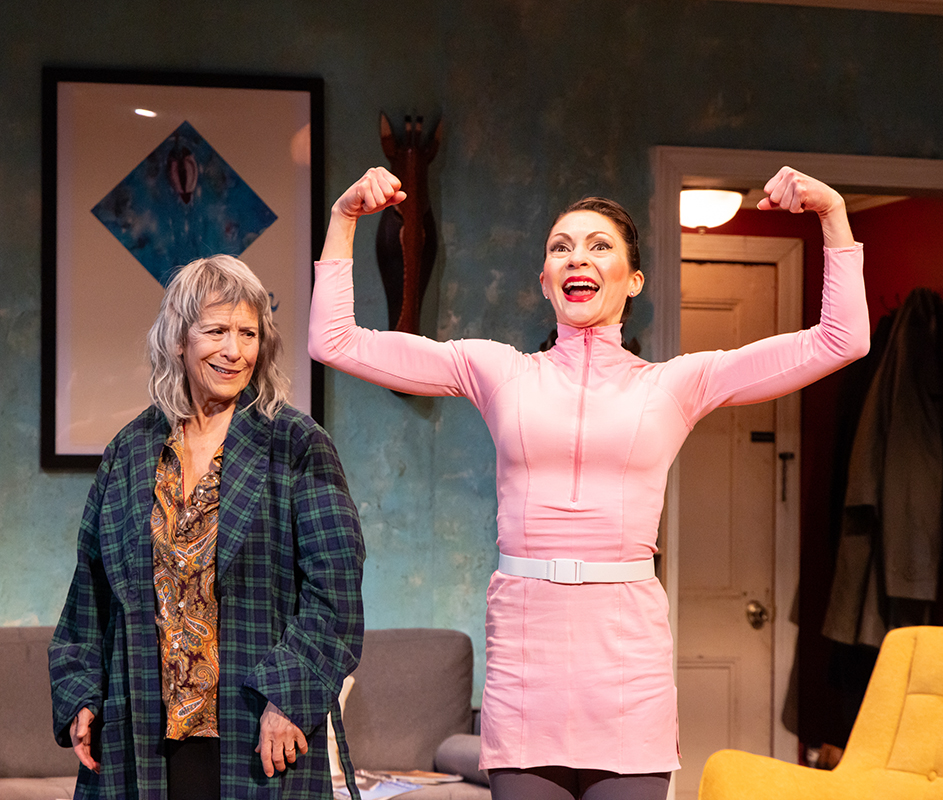
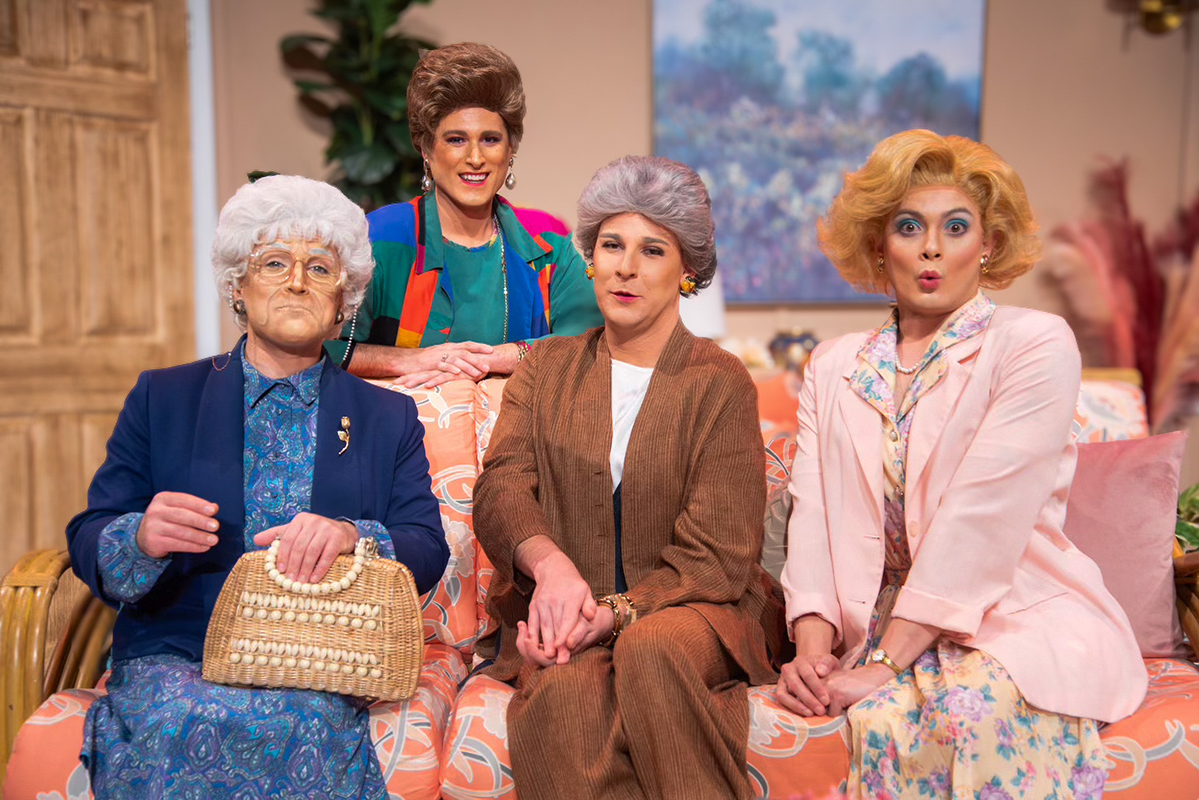
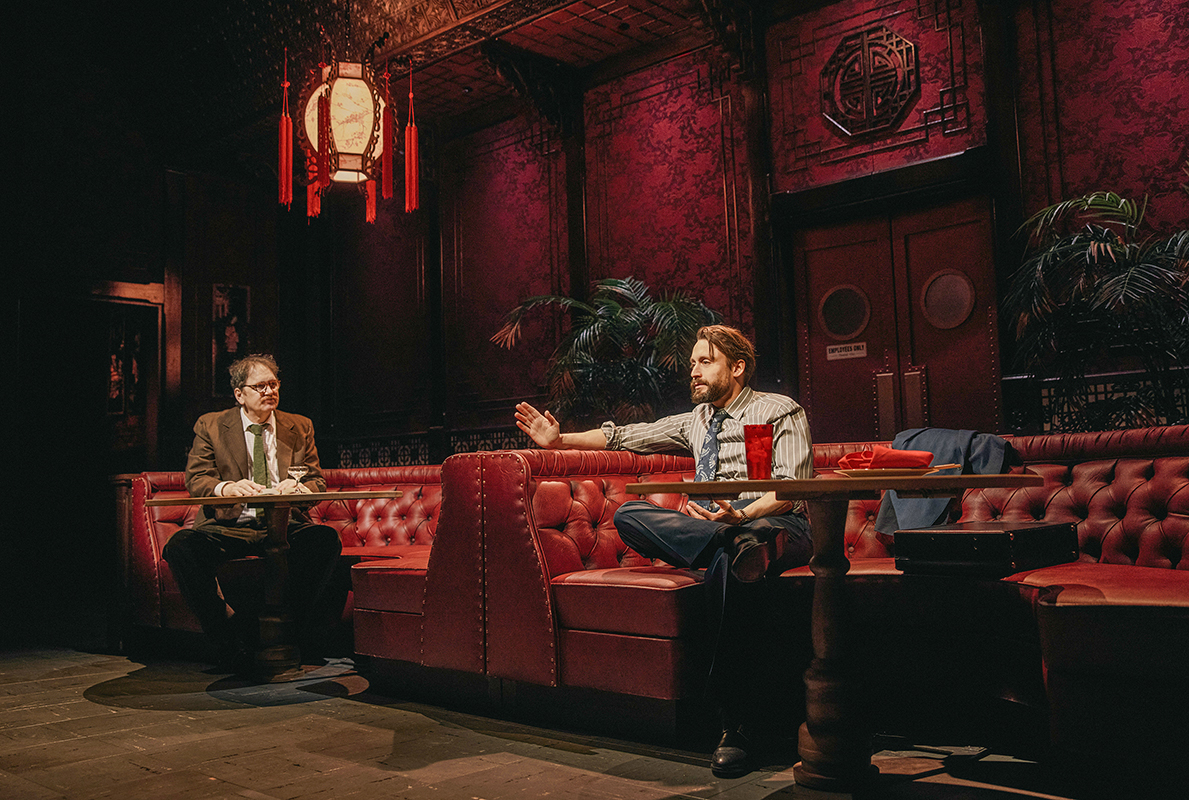
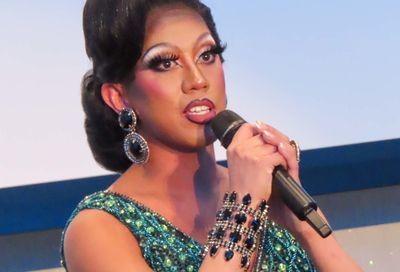
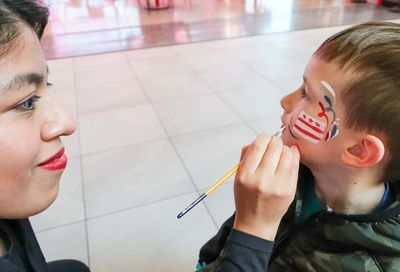
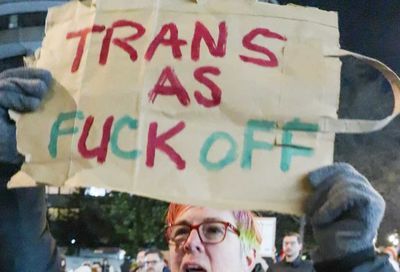
You must be logged in to post a comment.